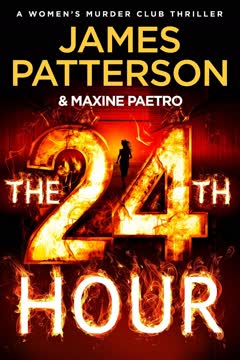Plot Summary
Luther's Unseen Witnessing Nightmare
Luther Whitney, a veteran thief, inadvertently becomes a witness to a murder involving the President of the United States, Alan Richmond. Hidden behind a one-way mirror during a burglary, Luther sees the President in a violent altercation with Christine Sullivan, which ends with her being shot by Secret Service agents. The agents cover up the incident, leaving Luther with a dangerous secret. As he escapes, he grapples with the moral implications of what he has seen and the potential consequences if he is discovered.
Jack's Life at a Crossroads
Jack Graham, a successful corporate lawyer, is engaged to Jennifer Baldwin, a woman of wealth and influence. Despite his career success, Jack is plagued by doubts about his impending marriage and life choices. An encounter with his ex-girlfriend, Kate Whitney, reignites unresolved feelings, forcing him to confront his past. Jack's internal conflict is compounded by the pressures of his high-stakes job and the expectations of his fiancée's powerful family.
Kate's Unresolved Past Resurfaces
Kate Whitney, a dedicated prosecutor, is committed to her work and driven by a desire for justice. Her past relationship with Jack Graham resurfaces, bringing unresolved emotions and issues. As she navigates her demanding career, Kate is forced to confront her feelings for Jack and the choices she made years ago. Her father's criminal past and her own sense of duty add complexity to her life, making her question what she truly wants.
Sullivan's Tragic Discovery
Walter Sullivan, a powerful businessman, is devastated by the murder of his young wife, Christine. As he grapples with his grief, the investigation into her death begins. The circumstances are shrouded in mystery, and Sullivan's connections to influential figures, including the President, add intrigue to the case. Sullivan's loss threatens to unravel the carefully constructed facade of his life and business empire.
Frank's Investigation Begins
Detective Seth Frank is tasked with investigating Christine Sullivan's murder. As he examines the crime scene, Frank is struck by the meticulous nature of the cover-up and the lack of leads. The case presents numerous challenges, including the involvement of high-profile individuals and potential political fallout. Frank's determination to uncover the truth drives him to pursue every angle, even as he faces pressure to close the case quickly.
White House Secrets and Lies
Gloria Russell, the President's Chief of Staff, is embroiled in a web of deceit as she works to protect the President from the fallout of Christine Sullivan's murder. The cover-up orchestrated by the Secret Service agents and the potential exposure of the President's involvement threaten to derail her career and the administration. Russell's strategic mind is put to the test as she navigates the treacherous political landscape, seeking to control the narrative and safeguard the President's reputation.
Gloria's Seduction and Betrayal
Gloria Russell uses her allure to manipulate Secret Service agent Tim Collin, only to discard him when he becomes inconvenient. Their relationship, initially a strategic move to secure his silence, devolves into a power play, leaving Collin humiliated. Gloria's actions reveal her ruthless nature, prioritizing her career over personal connections, setting the stage for further political intrigue and betrayal.
Sullivan's Desperate Measures
Grieving and desperate for justice, Walter Sullivan hires a professional assassin, McCarty, to eliminate the man he believes responsible for his wife's murder. Sullivan's actions highlight his willingness to bypass legal channels, driven by grief and a desire for vengeance. This decision introduces a dangerous new element into the narrative, as McCarty's presence threatens to escalate the situation beyond anyone's control.
Luther's Arrest and Revelation
Luther Whitney is arrested for the murder of Christine Sullivan. Despite the mounting evidence against him, Luther's calm demeanor suggests he holds crucial information about the true events of that night. His arrest sets off a chain of events, forcing those around him to confront their own roles in the unfolding drama. Luther's knowledge becomes a pivotal point, as it threatens to unravel the carefully constructed lies surrounding the murder.
Jack's Unwavering Defense Commitment
Jack Graham takes on Luther Whitney's case, driven by a sense of loyalty and justice. Despite pressure from his firm and personal relationships, Jack remains steadfast in his belief in Luther's innocence. His commitment to the case highlights his moral integrity and willingness to risk his career for the truth, setting him on a collision course with powerful forces determined to see Luther convicted.
Burton's Calculated Manipulations
Secret Service agent Bill Burton navigates a treacherous landscape, manipulating events to protect his interests and those of the President. His actions reveal a man willing to cross ethical lines, using threats and deceit to maintain control. Burton's calculated moves add layers of complexity to the narrative, as he balances loyalty to his country with self-preservation, ultimately setting the stage for a high-stakes confrontation.
Kate's Emotional Turmoil
Kate Whitney faces an emotional crisis as her estranged father, Luther, is arrested for murder. Torn between her duty to the law and her unresolved feelings for her father, Kate's internal conflict becomes a focal point of the story. Her journey highlights themes of forgiveness, justice, and the enduring bonds of family, as she grapples with the implications of her father's actions and her role in his arrest.
Jack's Desperate Escape Plan
Jack Graham, now a fugitive, is cornered by the police after a frantic chase. Despite the overwhelming odds, he manages to evade capture with the help of Detective Seth Frank, who believes in his innocence. Jack's situation is dire, with the police and the real killers closing in. He must rely on his wits and the few allies he has left to survive. As he navigates the treacherous landscape, Jack is determined to clear his name and uncover the truth behind the conspiracy that has ensnared him.
Frank's Dangerous Gamble
Detective Seth Frank, convinced of Jack's innocence, takes a significant risk by helping him evade capture. Frank's investigation leads him to uncover a web of deceit that reaches the highest levels of power. As he pieces together the evidence, Frank realizes that the conspiracy is more extensive than he initially thought. His determination to see justice served puts him at odds with his superiors and places him in grave danger. Frank's gamble is a testament to his unwavering commitment to the truth, even at the cost of his career and safety.
Richmond's Inevitable Downfall
President Alan Richmond's web of lies and deceit finally collapses as the evidence against him mounts. With testimonies from key figures like Gloria Russell and Tim Collin, Richmond's involvement in the murders and cover-up is exposed. The once untouchable leader is now a disgraced figure, facing impeachment and criminal charges. Richmond's downfall is a stark reminder of the consequences of unchecked power and the inevitable justice that follows. His story serves as a cautionary tale of ambition gone awry and the ultimate price of corruption.
Characters
Luther Whitney
Luther Whitney is a seasoned thief who inadvertently becomes a witness to a murder involving the President. Despite his criminal background, Luther is deeply troubled by what he has seen and struggles with the moral implications of his silence. His decision to flee and the knowledge he carries make him a target, forcing him to confront his past choices and the potential for redemption.
Jack Graham
Jack Graham is a lawyer who becomes a fugitive after being falsely accused of murder. His journey is marked by a relentless pursuit of the truth and a desire to clear his name. Jack's character is defined by his resilience, intelligence, and moral integrity. Despite the overwhelming odds, he remains steadfast in his quest for justice, ultimately uncovering a conspiracy that reaches the highest levels of power.
Kate Whitney
Kate Whitney is a dedicated prosecutor facing an emotional crisis as her father, Luther, is arrested for murder. Her internal conflict between duty and family loyalty becomes a focal point of the story, highlighting themes of forgiveness and justice. Kate's journey underscores the enduring bonds of family and the complexities of navigating personal and professional responsibilities.
Walter Sullivan
Walter Sullivan is a wealthy businessman devastated by his wife's murder. His decision to hire an assassin underscores his desperation and willingness to bypass legal channels for justice. Sullivan's actions introduce a dangerous element into the story, as his grief propels him into a world of violence and retribution.
Seth Frank
Detective Seth Frank is a dedicated law enforcement officer who believes in Jack's innocence. His investigation into the conspiracy puts him at odds with his superiors and places him in danger. Frank's character is marked by his unwavering commitment to justice and his willingness to take significant risks to uncover the truth. His actions are driven by a deep sense of duty and integrity.
Gloria Russell
Gloria Russell is the President's Chief of Staff, deeply involved in the cover-up of a murder. Her character is marked by ambition and a willingness to do whatever it takes to protect her position. Despite her initial complicity, Russell ultimately cooperates with the investigation, providing crucial testimony against Richmond. Her actions highlight the complexities of loyalty and the moral dilemmas faced by those in power.
Bill Burton
Bill Burton is a Secret Service agent who becomes embroiled in the cover-up of a murder involving the President. Haunted by guilt, Burton ultimately decides to come forward with evidence against the conspirators. His character arc is one of redemption, as he seeks to atone for his past misdeeds and protect his family. Burton's actions play a crucial role in exposing the conspiracy and bringing the perpetrators to justice.
Alan Richmond
President Alan Richmond is a charismatic leader whose ambition and deceit lead to his eventual downfall. Richmond's involvement in a murder and subsequent cover-up is exposed, resulting in his impeachment and criminal charges. His character serves as a cautionary tale of the dangers of unchecked power and the consequences of corruption.
Tim Collin
Tim Collin is a Secret Service agent who assists in the cover-up of Christine Sullivan's murder. His loyalty to the President and the agency is unwavering, but the weight of the secret he carries threatens to unravel his sense of duty and integrity.
Plot Devices
One-Way Mirror
The one-way mirror in the Sullivan mansion serves as a crucial plot device, allowing Luther Whitney to witness the murder of Christine Sullivan without being seen. This device sets the stage for the unfolding drama, as Luther's knowledge of the crime becomes a dangerous secret that drives the narrative forward.
Cover-Up
The cover-up orchestrated by the Secret Service agents and Gloria Russell is a central plot device that adds tension and complexity to the story. The efforts to conceal the President's involvement in the murder create a web of deceit that threatens to unravel the lives of those involved and heightens the stakes for all characters.
Moral Dilemma
The moral dilemmas faced by characters like Luther Whitney, Bill Burton, and Seth Frank drive the narrative and add depth to their development. The conflict between duty, personal integrity, and the pursuit of justice creates a rich tapestry of internal and external struggles that propel the story forward.
Conspiracy Unraveled
The conspiracy at the heart of the story involves high-level government officials and a cover-up of a murder. The unraveling of this conspiracy is a central plot device, driving the narrative forward and creating tension and intrigue. The exposure of the conspiracy serves as a catalyst for the characters' development and the resolution of the story.
Redemption Arc
The theme of redemption is explored through the character of Bill Burton, whose journey from complicity to atonement is a key plot device. Burton's decision to come forward with evidence against the conspirators highlights the power of redemption and the human capacity for change. His actions play a crucial role in the resolution of the story and the ultimate downfall of the corrupt officials.
Justice Served
The pursuit of justice is a central theme in the story, with characters like Jack Graham and Seth Frank embodying the fight for truth and integrity. The resolution of the story sees justice served, with the conspirators exposed and held accountable for their actions. This plot device reinforces the overarching message of the story: that truth and justice will ultimately prevail, even in the face of overwhelming odds.
Analysis
"Absolute Power" by David Baldacci is a gripping exploration of power, corruption, and redemption. The narrative delves into the moral complexities faced by individuals caught in a web of deceit and ambition. Through characters like Luther Whitney, Jack Graham, and Bill Burton, the story examines the struggle between personal integrity and the corrupting influence of power. The book serves as a cautionary tale about the dangers of unchecked authority and the potential for redemption through courage and truth. Baldacci's intricate plot and compelling characters highlight the enduring battle between justice and corruption, ultimately affirming the triumph of truth and integrity.
Last updated:
FAQ
Synopsis & Basic Details
What is Absolute Power about?
- Master Thief Witnesses Crime: The novel centers on Luther Whitney, a highly skilled, aging burglar who, while robbing a mansion, inadvertently witnesses a violent encounter involving the President of the United States and a woman, which ends in murder by Secret Service agents.
- High-Stakes Cover-Up: The President's Chief of Staff and Secret Service orchestrate a meticulous cover-up, attempting to make the death look like a burglary gone wrong, unaware that Luther is hidden behind a one-way mirror, observing their every move.
- Fugitive Caught in Conspiracy: Luther escapes with evidence and becomes a target, while a young lawyer, Jack Graham, is drawn into the dangerous conspiracy when he agrees to defend Luther after he is framed for the murder.
Why should I read Absolute Power?
- Intricate Political Thriller: The book offers a deep dive into the corrupting influence of absolute power and the lengths to which those in authority will go to protect their secrets, set against the backdrop of Washington D.C.'s elite circles.
- Compelling Moral Dilemmas: Readers will be drawn into the complex moral choices faced by characters like Luther, Jack, and Secret Service agents caught between duty, loyalty, and conscience.
- Fast-Paced Suspense: David Baldacci masterfully builds tension through a tightly woven plot, unexpected twists, and high-stakes confrontations, making it a gripping page-turner from start to finish.
What is the background of Absolute Power?
- Washington D.C. Setting: The story is deeply rooted in the political and social landscape of Washington D.C. and its affluent Virginia suburbs, highlighting the stark contrast between the powerful elite and ordinary citizens.
- Post-Cold War Political Climate: Published in 1996, the novel taps into public fascination and skepticism regarding the private lives of politicians and the potential for abuse of power within the highest levels of government.
- Focus on Wealth and Privilege: The narrative contrasts the immense wealth and protected lives of characters like the Sullivans and Baldwins with the precarious existence of those outside their circle, including career criminals and public servants.
What are the most memorable quotes in Absolute Power?
- "Absolute power corrupts absolutely.": This quote, attributed to Lord Acton and used as an epigraph, serves as the central thematic statement of the novel, foreshadowing the President's actions and the resulting corruption among those around him.
- "It was like flying. The longer you did it, the greater your chance of something bad happening.": Luther Whitney's internal reflection on his life of crime highlights the inherent risks of his profession and foreshadows the disastrous turn his seemingly routine burglary is about to take.
- "I will kill any fucking person who is in a position to fuck with me, do you understand that?": Bill Burton's chilling declaration to Gloria Russell reveals the brutal pragmatism and moral decay that results from their involvement in the cover-up, demonstrating the corrupting effect of protecting absolute power.
What writing style, narrative choices, and literary techniques does David Baldacci use?
- Third-Person Omniscient POV: Baldacci employs a third-person omniscient perspective, allowing readers access to the thoughts and motivations of multiple characters, building suspense by showing different sides of the unfolding events.
- Alternating Character Focus: The narrative frequently shifts focus between Luther, Jack, Kate, Frank, Russell, and the Secret Service agents, creating a multi-layered story that reveals the conspiracy from various angles.
- Detailed Procedural Elements: Baldacci incorporates detailed descriptions of burglary techniques, security systems, police investigations, forensic analysis, and political maneuvering, lending authenticity and depth to the thriller genre elements.
Hidden Details & Subtle Connections
What are some minor details that add significant meaning?
- Luther's Palm Trees: The miniature palm trees hanging from the rearview mirror of Luther's stolen car symbolize his long-held dream of retiring to a tropical paradise, a dream that is abruptly shattered by the night's events and ultimately becomes a poignant, unattainable symbol of freedom.
- The Dust Pattern: Luther's meticulous habit of replacing the remote exactly where it was, leaving it aligned with the dust pattern on the nightstand, is a subtle detail that initially suggests his professionalism but later becomes a crucial clue for the Secret Service agents, revealing the remote's function and the hidden vault.
- The Security System's Complexity: The detailed description of the Sullivan mansion's sophisticated security system, including its fifteen-digit base and forty-three-second delay, initially highlights Luther's skill in bypassing it, but later emphasizes the high level of expertise required, suggesting the involvement of someone beyond a simple burglar.
What are some subtle foreshadowing and callbacks?
- The Letter Opener's Prominence: The antique silver-plated letter opener is introduced early as a seemingly innocuous item on the nightstand, but its detailed description and later use by Christine Sullivan foreshadow its critical role as a weapon and, more importantly, as a key piece of evidence bearing incriminating fingerprints and blood.
- Luther's Observation of Russell: Luther's initial observation of Gloria Russell's "hard face" and later realization that she, like the President, is "dangerous" subtly foreshadows her ruthless actions and willingness to engage in extreme measures to protect her interests and the President's.
- Jack's Old Subaru: Jack's continued use of his ten-year-old Subaru wagon, despite his high salary, serves as a callback to his past life as a public defender and his relationship with Kate, symbolizing his lingering connection to his former values and simpler times, contrasting sharply with Jennifer's luxurious vehicles.
What are some unexpected character connections?
- Luther and Wanda Broome: The revelation that Luther Whitney and Wanda Broome, Christine Sullivan's maid, were old friends who met in a halfway house years ago is a significant and unexpected connection, explaining how Luther gained inside knowledge of the mansion and the vault, and linking his burglary directly to the victim's household staff.
- Walter Sullivan and the President's Relationship: The depth of the relationship between Walter Sullivan and President Richmond, described as mentor and protégé, adds a layer of complexity to the President's involvement and later actions, suggesting a bond that goes beyond mere political alliance and influences the President's personal interest in the case.
- Jack Graham and Barry Alvis's Fate: The subtle connection between Jack mentioning Barry Alvis to Jennifer and Alvis's subsequent abrupt firing highlights Jennifer's ruthless use of her influence and foreshadows the potential consequences for anyone who crosses the Baldwin family or inconveniences Jennifer.
Who are the most significant supporting characters?
- Detective Seth Frank: As the lead homicide detective, Frank is crucial to the plot, representing the pursuit of justice within the legal system. His methodical investigation, skepticism regarding the official narrative, and eventual alliance with Jack are pivotal in unraveling the conspiracy.
- Gloria Russell: The President's Chief of Staff is a key antagonist, embodying the corrupting influence of power and the lengths taken for political survival. Her strategic maneuvering, manipulation of others, and eventual cooperation are central to the plot's progression.
- Bill Burton: A conflicted Secret Service agent, Burton is essential as both a participant in the cover-up and, later, a source of crucial evidence. His internal struggle, loyalty to his family, and ultimate decision to expose the truth drive a significant part of the narrative resolution.
Psychological, Emotional, & Relational Analysis
What are some unspoken motivations of the characters?
- Luther's Guilt and Redemption: Beyond the initial motive of theft, Luther's decision to return to D.C. and pursue justice is driven by profound guilt over his inaction during Christine Sullivan's murder and a deep-seated need for redemption, symbolized by his desire to protect his daughter Kate.
- Russell's Ambition and Insecurity: Gloria Russell's relentless drive is fueled not just by ambition for power, but also by a deep insecurity stemming from past trauma (her father's abuse), leading her to seek validation and control through her association with the President.
- Richmond's Need for Control: President Richmond's reckless behavior and subsequent cover-up are motivated by an absolute need for control, not just politically, but personally, viewing people, including his lovers and staff, as assets or liabilities to be managed or discarded.
What psychological complexities do the characters exhibit?
- Luther's Dual Nature: Luther embodies a complex duality: a professional criminal with a strict moral code (only stealing from the rich, avoiding violence) juxtaposed with his deep paternal love and unexpected capacity for guilt and moral outrage.
- Kate's Righteousness vs. Trauma: Kate's rigid adherence to justice and her harsh judgment of her father are complex psychological defenses stemming from the trauma of his criminal lifestyle and absence during her childhood, creating a conflict between her professional ideals and personal pain.
- Burton's Moral Erosion: Bill Burton's psychological journey shows the erosion of a principled man's morality under extreme pressure. His initial justification for killing Christine Sullivan ("doing his job") gives way to profound guilt and self-loathing as the cover-up escalates, leading to his tragic end.
What are the major emotional turning points?
- Luther Witnessing the Murder: The moment Luther watches Christine Sullivan's murder is the primary emotional turning point for him, transforming him from a detached observer into a morally compromised witness burdened by guilt and a desire for justice.
- Jack's Confrontation with Kate: Jack's raw, emotional confrontation with Kate about her relationship with her father marks a critical turning point in their dynamic, forcing Kate to confront her long-buried pain and resentment and opening the possibility of reconciliation.
- Russell's Humiliation by Richmond: President Richmond's brutal, impersonal use of Gloria Russell after the cover-up is exposed is a major emotional turning point for her, shattering her illusions about their relationship and fueling her eventual decision to cooperate with the investigation.
How do relationship dynamics evolve?
- Jack and Kate's Rekindled Connection: Their relationship evolves from estranged ex-lovers with unresolved issues to tentative allies united by concern for Luther, culminating in a renewed emotional and physical intimacy that challenges Jack's impending marriage.
- Russell and Collin's Transactional Affair: What begins as Russell's calculated seduction of Collin for control and silence evolves into a brief, intense, and ultimately destructive affair, highlighting Russell's manipulative nature and Collin's vulnerability before ending abruptly.
- Sullivan and Richmond's Betrayal: The relationship between mentor and protégé devolves into mutual suspicion and deadly betrayal, as Sullivan realizes Richmond's culpability and Richmond orders Sullivan's death to protect himself, showcasing the ultimate corruption of their bond by power and self-interest.
Interpretation & Debate
Which parts of the story remain ambiguous or open-ended?
- The Fate of the Stolen Money: While Luther steals millions from the Sullivan vault, the ultimate fate of the majority of this money remains somewhat ambiguous after the initial payoff to Russell is traced and donated, leaving open questions about whether any of it was recovered or if Luther had other stashes.
- The Full Extent of Richmond's Crimes: While the novel exposes Richmond's involvement in murder and cover-up, the narrative hints at a pattern of reckless and potentially abusive behavior ("all those women, all those times"), leaving the full scope of his moral depravity open to reader interpretation.
- Kate and Jack's Future: The ending leaves the future of Jack and Kate's relationship open-ended. While they reconnect and share intimacy, Kate's decision to leave D.C. and her unresolved trauma suggest their path forward is uncertain, allowing readers to debate whether they will ultimately find lasting happiness together.
What are some debatable, controversial scenes or moments in Absolute Power?
- The Vault Witnessing Scene: The scene where Luther witnesses the murder from behind the one-way mirror is highly controversial due to its voyeuristic nature and the graphic depiction of violence and sexual activity, prompting debate about its necessity and impact on the narrative.
- Gloria Russell's Actions: Russell's decision to use her body to manipulate Collin and her subsequent coldness towards him are highly debatable, raising questions about her morality, the corrupting influence of power on women, and whether her actions are justifiable within the context of self-preservation.
- The President's Characterization: President Richmond's portrayal as a drunken, abusive, and murderous figure is a controversial depiction of a U.S. President, sparking debate about the novel's realism and its commentary on political power and morality.
Absolute Power Ending Explained: How It Ends & What It Means
- Conspiracy Exposed, Richmond Falls: The conspiracy unravels due to Bill Burton's conscience and insurance policy (the tapes), Seth Frank's persistent investigation, and Jack Graham's pursuit of justice. Collin and Russell cooperate, providing testimony that, combined with Burton's evidence and Walter Sullivan's posthumous tape, leads to President Richmond's indictment for murder-for-hire.
- Justice Served, But Not Without Cost: While Richmond faces trial (and likely conviction, though execution is debated), justice comes at a high price: Christine Sullivan, Luther Whitney, Walter Sullivan, Sandy Lord, the legislative liaison, the homeless man, and Bill Burton are all dead. The system ultimately holds the most powerful accountable, but the path is paved with tragedy and loss.
- Personal Futures Uncertain: Jack is cleared of murder charges but loses his job and fiancée, finding a potential new path with Kate, who also quits her job and plans to leave D.C. Their future, like the full extent of the political fallout, remains open-ended, suggesting that even when justice prevails, life is irrevocably changed for those involved.
Review Summary
Absolute Power received mixed reviews, with an average rating of 4.20/5. Many praised its gripping plot, believable characters, and exploration of presidential corruption. Critics appreciated Baldacci's suspenseful writing and intricate storyline. Some found the book overwritten and unnecessarily long, with clumsy dialogue and excessive character backgrounds. Despite these criticisms, readers generally enjoyed the novel's fast-paced action and intrigue. The book's premise of a burglar witnessing a presidential crime was widely considered compelling and original.
Absoliuti galia Series Series
Similar Books
Download PDF
Download EPUB
.epub digital book format is ideal for reading ebooks on phones, tablets, and e-readers.






















